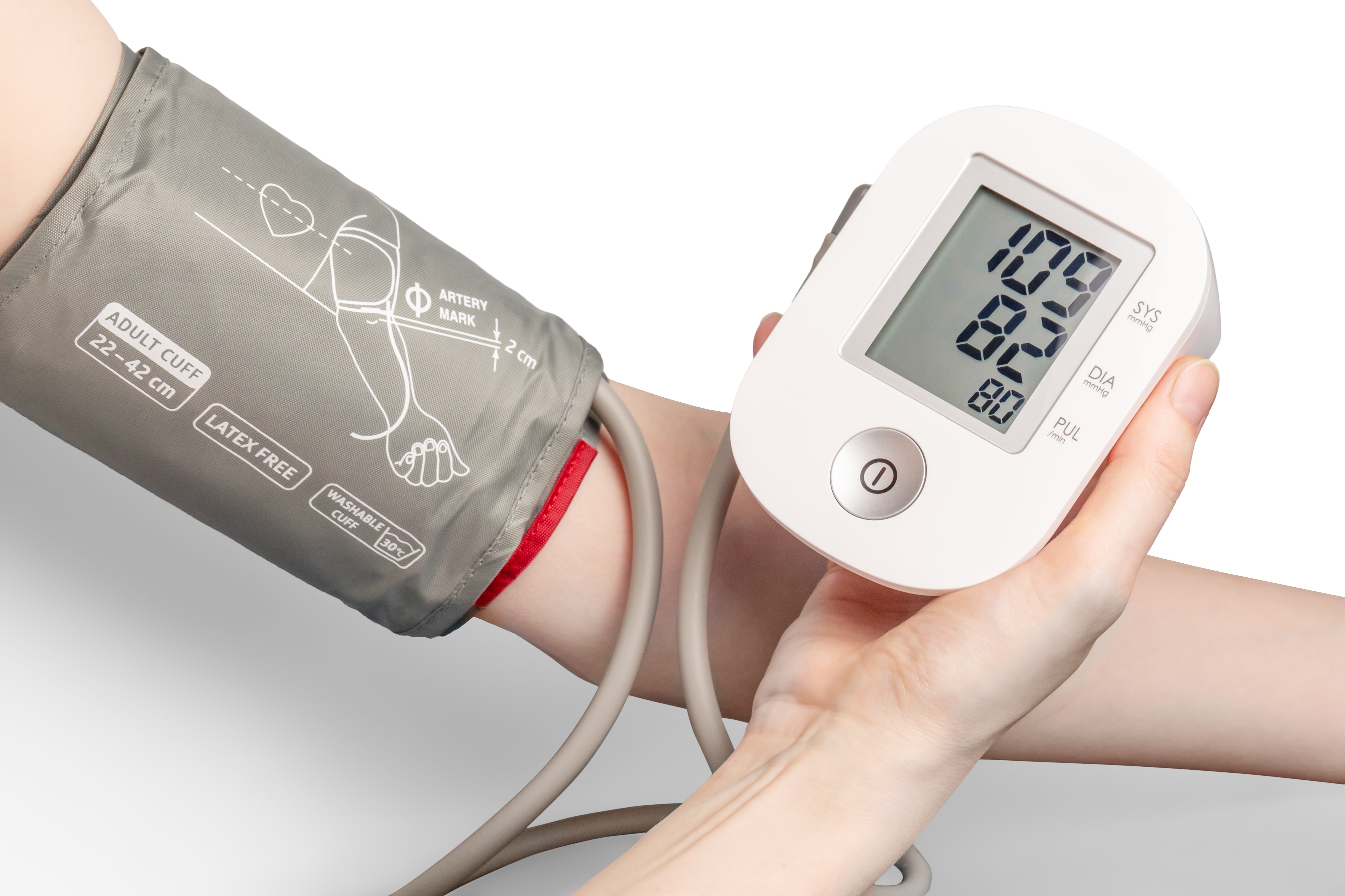
Why You Must Not Ignore High Blood Pressure
High blood pressure, also known as hypertension, is more common than you might think. In fact, the Centers for Disease Control and Prevention (CDC) reports that 45% of adults in the U.S. have high blood pressure or are taking medication for hypertension. Even more troubling is the fact that only about 1 in 4 adults with high blood pressure have their condition under control. So, how worried should you be if your doctor says you have high blood pressure? Learn more about why hypertension needs to be taken seriously, how to monitor your blood pressure, and what treatments are available.
Is High Blood Pressure Dangerous?
Unfortunately, high blood pressure does have the potential to be very harmful to your health. The condition causes damage to the blood vessels. LDL cholesterol starts to build up along the tears in artery walls, causing the circulatory system to become less efficient. The heart has to work harder to pump blood through these narrowed spaces, causing the pressure inside blood vessels to increase.
Over time, uncontrolled hypertension can lead to an increased risk for serious health complications, including:
- Heart attack
- Heart failure
- Stroke
- Aneurysm
- Kidney disease
- Kidney failure
- Angina
- Peripheral artery disease
- Metabolic syndrome
- Dementia
- Vision loss
- Sexual dysfunction
The CDC reports that in 2018, high blood pressure was a primary or contributing cause of death for nearly half a million people in the United States, and the World Health Organization (WHO) states that it is a major cause of premature death worldwide.
Symptoms of High Blood Pressure
There are no obvious signs or symptoms of the condition. Nearly one-third of people who have high blood pressure don’t know it. If your blood pressure is extremely high however, there may be certain symptoms to look out for:
- Severe headaches
- Nosebleed
- Fatigue or confusion
- Vision problems
- Chest pain
- Difficulty breathing
- Irregular heartbeat
- Blood in the urine
- Pounding in your chest, neck, or ears
If you have any of these symptoms, see your primary care doctor or visit an ER immediately. You could be having a hypertensive crisis that could lead to a heart attack or stroke.
How to Check Your Blood Pressure
Hypertension often goes undetected, earning it the ominous nickname of “the silent killer.” That’s why it’s so important to have your blood pressure checked regularly at routine doctor’s appointments.
At Bella Terra Primary Care, our healthcare team takes a blood pressure reading as part of every physical exam. The test is painless and quick. Here’s how it works:
- Patients are advised not to smoke, consume caffeinated drinks, or exercise for 30 minutes before the test.
- You’ll need to sit in a chair in a relaxed position and roll up your sleeve while the test is being taken.
- A cuff will be placed snugly around your upper arm. Then, a small hand pump is used to inflate it.
- The cuff will begin to squeeze tighter around your arm as it inflates. The air inside will then be slowly released and your blood pressure will be recorded from the gauge.
Your blood pressure reading consists of a top (systolic) number and bottom (diastolic) number, such as 120/80. Blood pressure measurements are categorized according to these numbers:
- Normal blood pressure: Below 120/80
- Elevated blood pressure: 120-129/below 80
- Stage 1 hypertension: 130-139/80-89
- Stage 2 hypertension: 140+/90+
- Hypertensive crisis (requires immediate medical attention): 180+/120+
Physical exams are important, and your primary care physician can help you monitor your blood pressure with an at-home device or at a pharmacy with a digital blood pressure measurement machine.
How to Lower Blood Pressure
If you are diagnosed with hypertension, your doctor may prescribe medication to help lower blood pressure. There are a number of different medications which may be used individually or in combination to treat hypertension, including diuretics, angiotensin-converting enzyme (ACE) inhibitors, calcium channel blockers, and beta blockers.
In addition, your doctor may recommend lifestyle changes to help manage your high blood pressure, such as:
- Getting regular exercise
- Maintaining a healthy weight
- Eating a heart-healthy diet
- Limiting alcohol intake
Dr. Karki at Bella Terra Primary Care also recommends these healthy lifestyle changes to help prevent high blood pressure and other health conditions. This is especially important if you have an increased chance of developing hypertension due to certain risk factors, such as having a family history of high blood pressure or being overweight.
Are you worried about the potential health problems that could develop as a result of high blood pressure? Schedule a physical exam at Bella Terra Primary Care to get a blood pressure reading and a full health assessment to address your concerns. Take a proactive approach to your health and get innovative, compassionate, and expert care by visiting our Huntington Beach doctor’s office.
